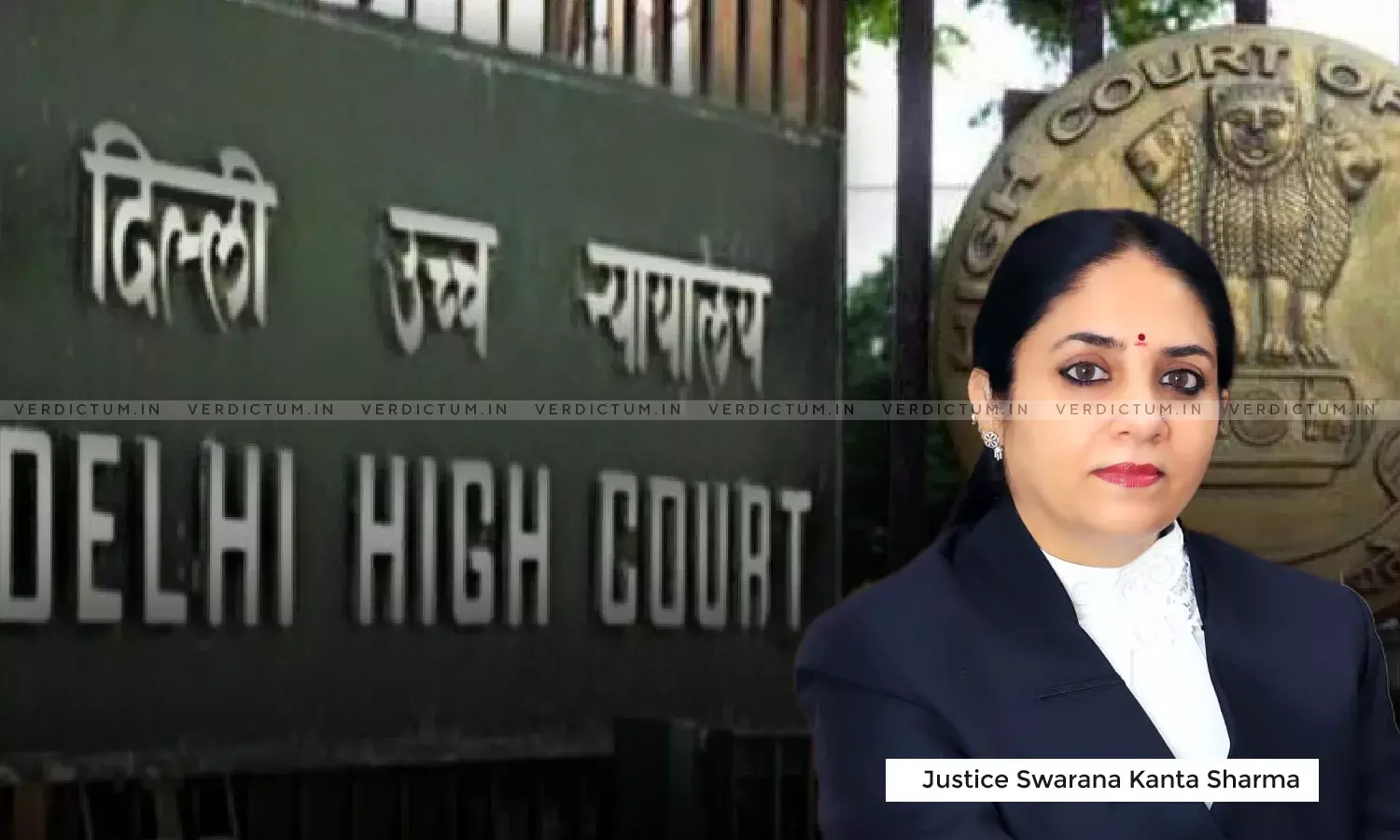Right To Medical Treatment Shall Not Overshadow Need For Fair Investigation: Delhi HC While Denying Bail To Businessman In Excise Policy Scam

Justice Swarana Kanta Sharma, Delhi High Court
The Delhi High Court recently denied regular bail to businessman Sameer Mahandru (Managing Director of Indospirit Group) in the Delhi excise policy scam on medical grounds, noting that while the right to healthcare and medical treatment is fundamental, it should not take precedence over the crucial requirement for a fair investigation and the adherence to due legal processes.
Additionally, the High Court clarified that the laws of individual’s right to liberty while being a precious right has to be surrendered in favour of the State when the grounds so exist for the same.
A Single Judge Bench of Justice Swarana Kanta Sharma observed that “the allegations against the present applicant in the present FIR have been that he was one of the main conspirators and a key player in the formulation of the excise policy and its exploitation later, and was also involved in the formulation of a super cartel between the manufacturers, wholesalers and retailers. The applicant had allegedly earned huge profits of around Rs. 192 crores against meagre investment of Rs. 15 crores, in his firm M/s. Indo Spirits which is the proceeds of crime. As regards the conduct of applicant, it is the case of respondent that the applicant had not cooperated during the investigation and had not provided the relevant details, and on his behest, his counsels had also made attempts to influence the witnesses, who were the employees of applicant, who had been called for investigation by the respondent. The applicant had allegedly also destroyed the evidence i.e. his mobile phone at least four times at the time of alleged scam being exposed in public”.
Thus, the Bench added that “while the applicant’s right to healthcare and medical treatment is a fundamental consideration, it cannot be allowed to overshadow the pressing need to investigate fairly and ensure that due legal processes are followed”.
Advocate Kirti Uppal appeared for the Petitioner, whereas Advocate Zoheb Hossain appeared for the Respondent.
As per the brief facts, the applicant faced legal proceedings initiated by the Central Bureau of Investigation (CBI) and the Directorate of Enforcement. He sought regular bail on medical grounds, citing a series of health issues. The applicant had been hospitalized for various medical conditions, including a surgery on his left knee. He recently fell in jail, leading to further health complications, and alleged that he did not receive timely medical attention. Additionally, he provided a medical report from AIIMS supporting his claim that he required further treatment and hospitalization.
After considering the submission, the Bench observed that the prospect of seeking bail on medical grounds arises when the prison authorities are incapable of providing the required care or treatment essential for the treatment of accused including the referral hospitals.
“It is also crucial that the sickness should be of such a nature that if the accused is not released on bail, he cannot be ensured proper treatment for his ailment”, added the Bench.
The Bench emphasized that the undertrial prisoners are sent to prison not as a matter of punishment, but considering the law regarding there being grounds to confine them in prison.
The Bench explained that the prisoners generally are unable to look after themselves while being in detention and it is primarily the responsibility of the State to provide for health services, the health services and care have to be equivalent to that available to the outside general citizen.
The Bench expressed that the applicant did not suffer from any life-threatening condition, sickness, or infirmity that would pose a danger to his life, and for which treatment could not be made available to him in jail.
The Bench also noted that the applicant received sufficient medical attention as needed, and the prison authorities, considering his medical condition, permitted him to receive treatment from his doctor on an outpatient basis when necessary.
As a result, the High Court concluded that there were no grounds to grant regular bail to the applicant in the present ECIR.
Nonetheless, the High Court clarified that the previously issued directions must be followed by the jail authorities, including taking the applicant for follow-up and physiotherapy sessions.
The High Court further directed the concerned Jail Superintendent to guarantee that the applicant is not left unattended in the jail cell or dispensary.
Cause Title: Sameer Mahandru v. Directorate of Enforcement [2023: DHC: 7697]
Click here to read/ download the Judgment

